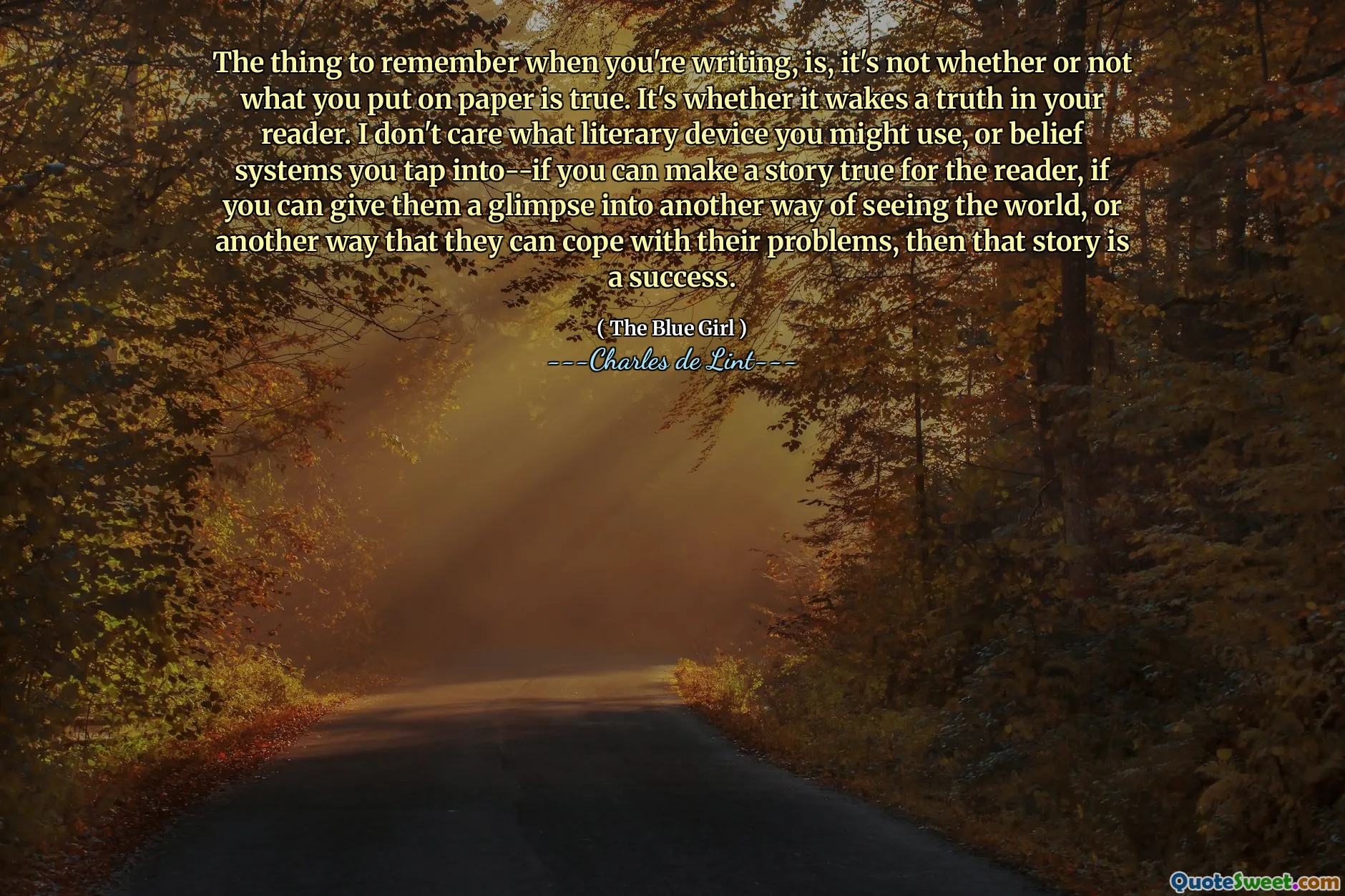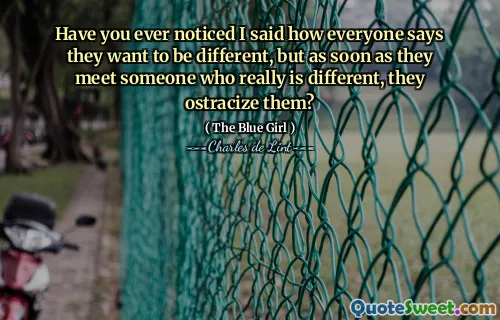
The thing to remember when you're writing, is, it's not whether or not what you put on paper is true. It's whether it wakes a truth in your reader. I don't care what literary device you might use, or belief systems you tap into--if you can make a story true for the reader, if you can give them a glimpse into another way of seeing the world, or another way that they can cope with their problems, then that story is a success.
This quote emphasizes the importance of emotional authenticity and resonance in storytelling over mere factual accuracy or the use of literary devices. It underscores that fiction and storytelling serve a profound purpose: to evoke genuine feelings or insights within the reader. When a story manages to reflect truths, whether they're emotional, psychological, or philosophical, it has the power to bridge the gap between the writer's experience and the reader's understanding. Authorization of storytelling shines through its ability to offer new perspectives—showing worlds, lives, and coping mechanisms that differ from our own, thereby broadening empathy and understanding.
The idea that a story's value lies in its truthfulness to the human experience reinforces the concept that fiction isn't just escapism but a mirror of real human conditions, struggles, and triumphs. Crafting stories that strike a chord can create lasting impact, influencing how people see themselves and others. Such stories can provide solace during times of hardship or open windows into lives vastly different from their own. This perspective encourages writers to focus on emotional honesty and authenticity, knowing that when a reader feels deeply connected to a story's truth, the narrative has achieved its highest purpose.
Moreover, it reminds writers that their craft isn't about impressing with complexity or cleverness, but about heartfelt storytelling. When truth—whether literal or emotional—is at the core, stories become powerful vessels for connection, understanding, and empathy, ultimately enabling readers to cope better with their realities and see the world through a richer, more compassionate lens.







